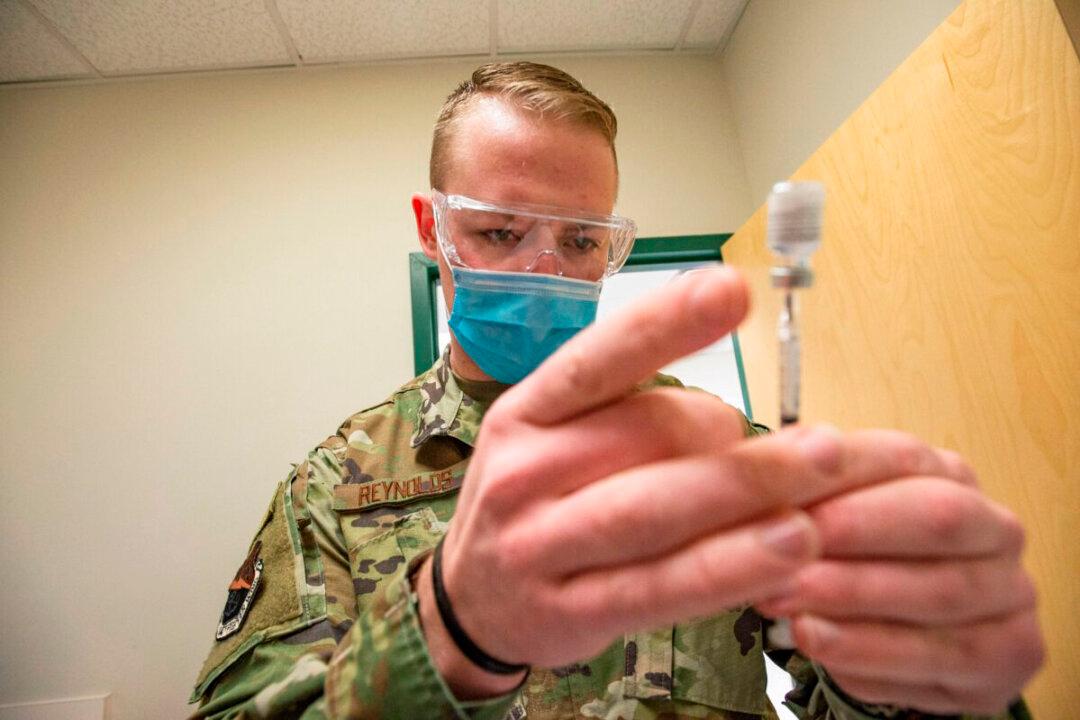Air Force members seeking religious exemptions from the U.S. military’s COVID-19 vaccine mandate have provided “significant proof” that the service branch has discriminated against them, a federal appeals court ruled on Sept. 12.
A three-judge panel of the U.S. Court of Appeals for the 6th Circuit said in its decision that plaintiffs had to provide significant proof that the Air Force had a policy to deny all requests for religious exemptions, and all indications are that they have.





